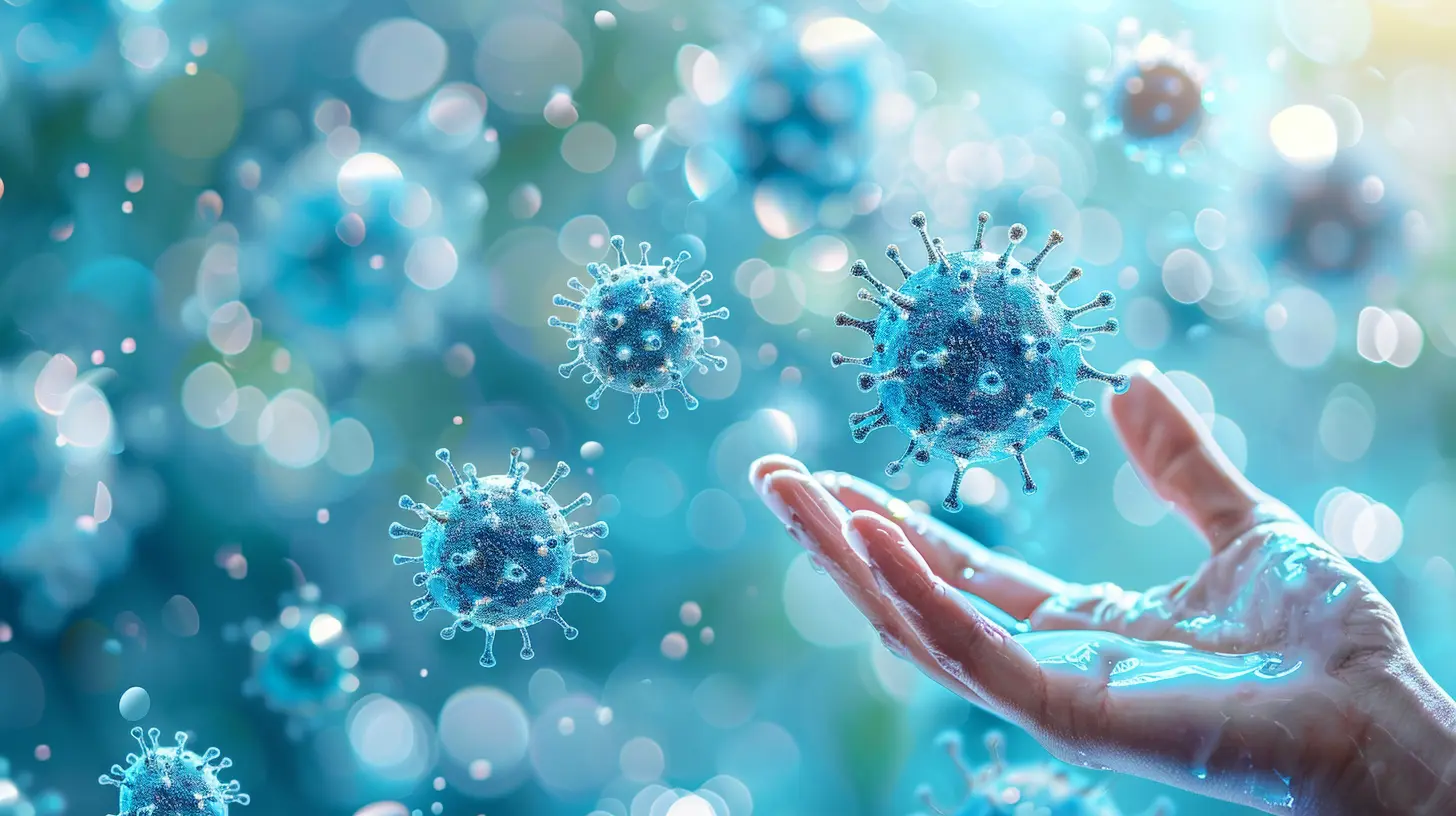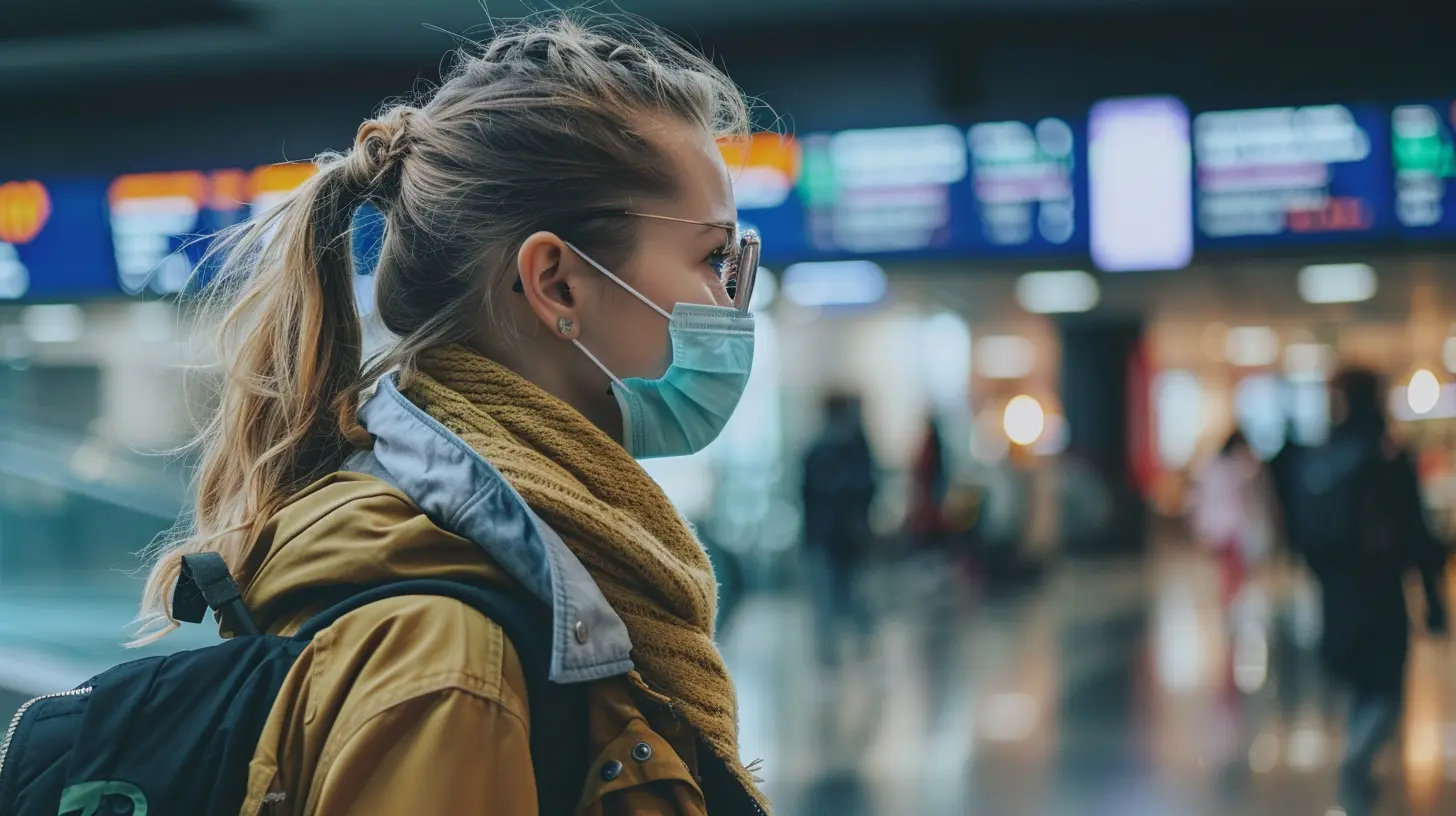7 December 2024
Traveling is exciting, isn't it? New places, new faces, and, unfortunately, new — often invisible — threats to your health. We’re talking about germs! Now, I know what you're thinking, “I wash my hands regularly, does it really matter that much when I’m on the road?” Oh, you bet it does! Whether you're backpacking through Europe, flying halfway across the world, or just heading out for a weekend getaway, maintaining good hand hygiene while traveling is one of the simplest and most effective ways to protect yourself from getting sick.
So, let’s dive into why hand hygiene is so crucial for travelers, how to do it right, and the role it plays in keeping us healthy, especially when we're far from home.

Why is Hand Hygiene So Important While Traveling?
Ever heard the phrase, "You are what you eat?" Well, in the case of germs, "You are what you touch." From airport security trays (which can harbor more germs than toilet seats—yikes!) to hotel remotes, handrails, public restrooms, and even your own luggage, it’s safe to say your hands are probably going to touch quite a few things while traveling.Without proper hand hygiene, those germs can easily find their way into your system, especially when you eat something, touch your face, or rub your eyes. The result? A potential cocktail of bacteria and viruses that could derail your entire adventure.
Germs Are Part of Life – Especially When You Travel
Every place—whether it’s a bustling city, a serene beach, or an exotic jungle—comes with its own unique ecosystem, which includes a variety of bacteria, germs, and viruses. While some might be harmless, others can cause anything from mild discomfort to serious illnesses. When you're in an unfamiliar environment, your immune system might not be as prepared to fight off the local germs as it is back home. This is why travelers often fall prey to illnesses like the common cold, traveler's diarrhea, or even more severe infections.Common Illnesses Spread Through Touch Include:
1. Respiratory Infections: Think colds, the flu, or even COVID-19.2. Gastrointestinal Infections: Traveler’s diarrhea can often be traced back to poor hand hygiene.
3. Skin Infections: Cuts or scrapes can easily become infected if hands aren't clean.

When Should You Wash Your Hands While Traveling?
You might already know you should wash your hands before eating or after using the restroom, but when you're on the road, there are some additional "must-wash" moments to be aware of. Some of these may be less obvious but equally important.Here Are Key Times to Wash Your Hands While Traveling:
- Before and after eating: This one’s a no-brainer. You don’t want to invite bacteria to your dinner party, right?- After using public transport: Buses, trains, and planes are hotbeds for bacteria. Think about all the surfaces people touch!
- After handling money: Money changes hands constantly; it's pretty much a germ carnival.
- After using shared restroom facilities: Whether it’s at the airport, on the plane, or in a rest stop, washing hands after using public restrooms is essential.
- After handling your luggage: Your suitcase has been on the ground, on conveyor belts, and possibly in someone else's hands—yuck!
- Before touching your face: Do you know how often humans unconsciously touch their faces? A lot. So anytime you're about to touch your face, make sure your hands are clean.
By making hand hygiene a priority, you’re not only protecting yourself but also everyone around you. It’s a simple habit, but it can make a world of difference!

How to Properly Wash Your Hands While Traveling
Alright, now that we’ve established when to wash your hands, let’s talk about how. Spoiler alert: a quick splash under running water doesn’t cut it.4 Simple Steps to Proper Handwashing:
1. Water First: Start by wetting your hands with clean, running water (warm or cold, it doesn’t matter much).2. Lather: Use soap and scrub all surfaces of your hands, including the back of your hands, between your fingers, and under your nails. Sing a short tune (like "Happy Birthday") to make sure you’re scrubbing for at least 20 seconds.
3. Rinse: Rinse off the soap completely under clean, running water.
4. Dry: Dry your hands using a clean towel or air dry. If you're in a public restroom, use a paper towel to turn off the tap.
Think you're done? Almost. Let's talk about those times when soap and water aren't available because, let’s face it, when you're out exploring a remote beach or hiking a mountain trail, a sink isn’t always nearby.

When Soap and Water Aren’t an Option: The Role of Hand Sanitizer
Yep, that little bottle of hand sanitizer can be a traveler's best friend in certain situations. But (and this is important), not all hand sanitizers are created equal. If you’re not careful, you could end up with a product that does little more than make your hands feel sticky.Here’s What You Need to Know:
- Choose the Right Sanitizer: Make sure your hand sanitizer contains at least 60% alcohol. Anything less won't be effective against germs.- Use It Correctly: Don’t just dab a little blob on your palm. Squirt enough to cover all surfaces of your hands and rub them together until dry (about 20 seconds).
- Don’t Substitute: Remember that hand sanitizer is a backup to soap and water, not a replacement. Use it when you’re really in a pinch, but always aim to properly wash your hands whenever possible.
Hand sanitizers are particularly useful when you’re handling food outdoors, sitting on public transport, or touching surfaces that hundreds (if not thousands) of other travelers have touched too.
Traveling With Hand Hygiene in Mind
Now that you know the "why" and the "how" of hand hygiene while traveling, let’s talk about practical tips you can implement on your next trip. Consider this your hand hygiene travel toolkit.1. Pack Your Own Soap and Hand Sanitizer
Not all public restrooms are created equally, and some may lack essentials like soap. Keep a small bottle of hand sanitizer in your bag or pocket, and consider carrying a portable bar of soap or soap sheets to make sure you're never caught off guard.2. Bring a Microfiber Towel
It’s lightweight, dries quickly, and can be used to dry your hands after washing them. It may sound minimal, but it can be a lifesaver when you're on the go, especially in developing countries where paper towels aren't always available.3. Avoid Touching Public Surfaces Whenever Possible
Use your elbow to press buttons, your knuckle to push touchscreen keys, and a tissue or napkin to open doors. Every little bit helps.4. Don’t Forget Moisturizer
Constant handwashing and the use of alcohol-based sanitizers can dry out your skin. Pack a small bottle of hand lotion to keep your hands hydrated and comfortable.The Bigger Picture: Hand Hygiene Protects More Than Just You
Yes, proper hand hygiene protects you from getting sick while traveling, but it goes beyond that. It also protects the people around you. What if you pick up a virus and bring it back home? Or spread germs to someone vulnerable, like a child or elderly person? Hand hygiene is a global issue, and as travelers, we have a responsibility to contribute to healthier communities wherever we go.The reality is, when you take the time to wash your hands and maintain cleanliness, you’re not just making your travel experience better, you’re helping to stop the spread of diseases worldwide. In a way, it’s a small act that connects us, making the world a safer and healthier place to explore.
Conclusion
Travel is filled with unforgettable experiences. But you know what you definitely won’t want to remember from your trip? Getting sick. By paying attention to something as simple as hand hygiene, you can reduce your chances of illness and keep your adventures as carefree as possible.So, before you jet off on your next journey, make sure you’ve got your handwashing techniques down pat and a bottle of sanitizer stashed in your bag. Trust me, your future self will thank you.









Indie Forbes
Hand hygiene is crucial for travelers, as it significantly reduces the risk of illness and supports overall well-being. By practicing proper handwashing and using sanitizers, travelers can enjoy their adventures safely, ensuring that memorable experiences are not overshadowed by preventable health issues.
April 7, 2025 at 3:34 AM